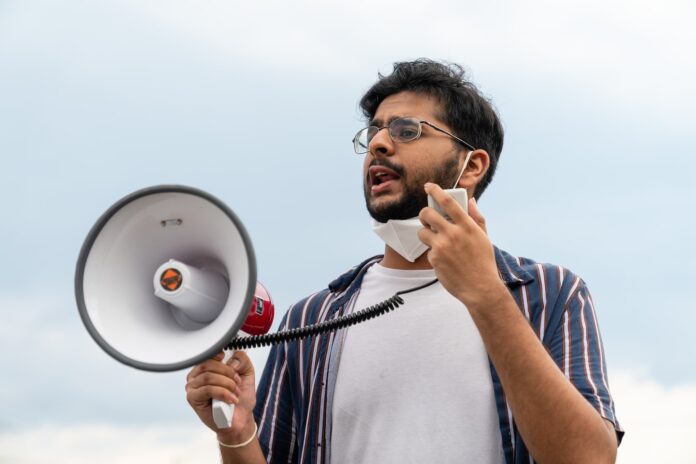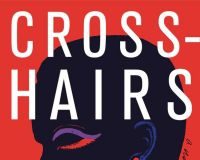
The essay opened with a scene of him putting on lipstick in a shade “muted enough to avoid an explosive argument, but vibrant enough to challenge” his family’s understanding of gender norms.
Then it showed Rawal obeying orders to remove the lipstick.
“For years, my sexual orientation clashed with my Indian heritage,” he wrote in that essay. “I threw out pink clothes, purged musicals from Spotify playlists, remained silent in class discussions on LGBTQIA+ issues, and deepened my voice to hide the inflections of the ‘gay voice’ — all in an attempt to stamp out my sexuality. None of it worked, but I still avoided anything with even loose connections to Queerness until the pandemic. No longer walking hallways pierced by gay slurs, I finally appreciate that my sexuality is not tethered to a color, music genre, behavior, or voice, but rather, a part of me I cannot change.”
Rawal is now a student at Harvard University. Virginia’s public schools propelled him to that prestigious campus, and that should be a point of pride for the state. But a close look at his experience also shows this: A shift in policy could have shifted that outcome.
Rawal said it wasn’t until his senior year of high school that he began to openly identify as queer at school. He said he only felt safe doing that because of the “model policies” put in place by then-Gov. Ralph Northam (D) to protect transgender students. The policies direct schools to allow, without deferring to parents, students to use facilities, pronouns and names that align with their gender identity.
Rawal is not transgender, but he said the polices created an atmosphere where he felt free to be himself at school. He described it as allowing him to focus on his studies and pursue his passions.
“I don’t think I would be attending Harvard without that policy,” Rawal told me on a recent afternoon. “I think I would have been very depressed and suicidal.”
The 18-year-old shared his essay with me and agreed to speak openly about his experience in Virginia’s schools because he knows what’s at stake right now for LGBTQIA+ students in the state. He also decided long before we talked that he didn’t want to hide that part of himself in his public life. As an activist with the Pride Liberation Project, he has contributed to op-eds that identify him as LGBTQIA+ and he has been open about his identity on social media.
One of his most recent tweets on the subject came after Virginia Gov. Glenn Youngkin (R) unveiled new directives that would remove the protections put in place by Northam’s model policies.
“The model trans policies saved my life and are the reason I was able to attend a school that, while not perfect, still affirmed some of my humanity,” Rawal tweeted. “@GlennYoungkin new guidelines undermine the humanity of so many Queer kids — especially gender Queer and Queer students of color.”
The model trans policies saved my life and are the reason I was able to attend a school that, while not perfect, still affirmed some of my humanity.@GlennYoungkin new guidelines undermine the humanity of so many Queer kids- especially gender Queer and Queer students of color.
— Aaryan Rawal (@aaryannotaaron) September 17, 2022
The new policies require schools to force students to use restrooms and other facilities corresponding with their assigned sex at birth and prevent students from changing their names or pronouns without parental permission. They do this despite studies that show LGBTQ youth are already at high risk of self-hate and self-harm.
In the United States, at least one young person who identifies as LGBTQ attempts suicide every 45 seconds and 1.8 million seriously consider it each year, according to the Trevor Project. The organization, which offers 24-hour crisis support, found through its 2022 national survey that 45 percent of LGBTQ youths seriously considered attempting suicide in the past year.
“We know if this gets implemented, students will die in Virginia,” Rawal said. “Students will be subject to abuse and harassment. To us this isn’t a game. This isn’t about advancing an agenda.”
Youngkin has defended the new policies using the same rhetoric that helped him get elected — he’s doing it for parents. “Schools shall defer to parents to make the best decisions with respect to their children,” reads a guiding principle of the proposed policies. I am a parent of two children in Virginia’s public schools. And I know I am not alone in wanting their schools to be free from policies that are based in hate and breed fear. Schools should serve as safe spaces for all children — not just because all homes don’t feel safe, but especially because all homes don’t feel safe.
Years before I was a columnist, I was a cops reporter, and in that position, I saw time and again parents who were capable of horrific cruelty toward their children. Saying he trusts parents to do right by their children may help build a presidential platform for Youngkin, but using it to restrict how vulnerable children can identify in the places where they spend much of their time is inhumane and dangerous.
His policies stand to cost not only lives but also human potential. How can we expect LGBTQ students to thrive when we are putting in place policies that we know will make it more difficult for them to survive?
For a column I wrote about Nona Moselle Conner, a transgender woman who died at the age of 37, I spoke to her father. He told me that for a long while, he couldn’t hug her in public without worrying about who was looking. But by the time she was stabbed 48 times (in an attack she survived), he didn’t care who saw him pull her close.
“A lot of men who have children who are gay and transgender have a lot of issues, and if we were able to overcome our issues, I think a lot of our kids wouldn’t suffer as much or for as long as they do,” he told me after her death. “I know I lost a lot of years. A lot more than I should have. But I thank God she knew without a shadow of a doubt how much I loved her.”
The new policies won’t take effect until after a 30-day public comment period, which is expected to start Monday. Already experts have questioned the legality of the changes and several school systems have vowed to resist them. But the most compelling opposition has come from students who have expressed fear and worry.
After the new policies were announced, the student-run Pride Liberation Project heard from 250 students within 24 hours and nearly 1,000 students within days. The organization also knows of more than 90 schools across the state where students are planning to walk out in protest. A statement released by the Pride Liberation Project condemned Youngkin’s new policies as “bigoted.”
“These revised guidelines will only hurt students in a time when students are facing unparalleled mental health challenges, and are a cruel attempt to politicize the existence of LGBTQIA+ students for political gain,” it reads.
At Harvard, Rawal is studying political science. But he knows he just has to look at his hometown to see how policies have real-life ramifications.
In his essay, he wrote about accepting his own identity and making a commitment to help others.
The new policies require schools to force students to use restrooms and other facilities corresponding with their assigned sex at birth and prevent students from changing their names or pronouns without parental permission. They do this despite studies that show LGBTQ youths are already at high risk of self hate and self harm.








